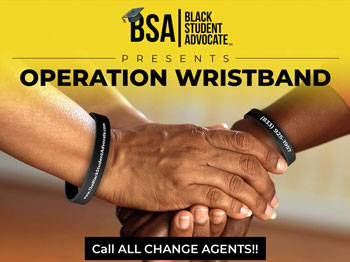Violence in schools is a serious issue that affects not only the victims but also the entire school community. It is crucial to address this issue to promote safety, inclusivity, and justice for all students. In recent years, there has been a growing recognition of the need for black student advocacy groups to address the unique challenges black students face in schools. The Black Student Advocate Network (BSAN) is one such group that aims to empower black students and create a more equitable and supportive environment in schools.
In this article, we will explore the importance of the BSAN and provide useful strategies for how to stop violence in schools.
The Importance of the Black Student Advocate Network (BSAN)
The BSAN is a network of student-led organizations that promotes safety, inclusivity, and justice for black students in schools. The group provides a platform for black students to voice their concerns, share experiences, and advocate for policies that address their unique needs.
Black students face unique challenges in schools, including racial profiling, discrimination, and unequal treatment. These challenges can often lead to feelings of isolation, anxiety, and depression. The BSAN aims to create a supportive community for black students and empower them to address these challenges.
The BSAN also works to raise awareness about the impact of structural racism on black students. By advocating for policies that combat racism and promote inclusivity, the BSAN helps create a more equitable and just school environment for all students.
Strategies for Stopping Violence in Schools
In addition to the work of advocacy groups like the BSAN, there are several strategies schools can implement to stop violence and create a safer and more supportive environment for all students. Here are some useful strategies:
1. Implement a Zero-Tolerance Policy for Violence
Schools should have a zero-tolerance policy for violence. This means that any form of physical, verbal, or emotional violence will not be tolerated and will result in appropriate disciplinary action.
A zero-tolerance policy sends a clear message that violence is unacceptable and helps create a culture of safety and respect in the school community.
2. Encourage Positive Behavior
Schools should encourage positive behavior by recognizing and rewarding students who exhibit positive behavior. This can include being kind to others, helping others, or participating in extracurricular activities.
By focusing on positive behavior, schools can help create a culture of kindness and respect that discourages violence and promotes inclusivity.
3. Provide Mental Health Support
Many students who engage in violent behavior often have underlying mental health issues that need to be addressed. Schools should provide mental health support services, including counseling and therapy, to help students who are struggling with mental health issues.
Providing mental health support can help students cope with stress and anxiety and help prevent violent behavior.
4. Create a Safe and Supportive Environment
Schools should create a safe and supportive environment for all students. This includes having a school culture that promotes inclusivity and respect for diversity.
Creating a safe and supportive environment can help prevent violent behavior by promoting positive relationships and a sense of belonging among students.
5. Foster Open Communication
Schools should foster open communication between students, teachers, and parents. This can help create a culture of transparency and trust that encourages students to report incidents of violence or other safety concerns.
Fostering open communication can help prevent violent behavior by allowing school officials to address concerns before they escalate into violent incidents.
Conclusion
Violence in schools is a serious issue that affects not only the victims but also the entire school community. The Black Student Advocate Network (BSAN) is one group that aims to empower black students and create a more equitable and supportive environment in schools.
In addition to the work of advocacy groups like the BSAN, there are several strategies schools can implement to stop violence and create a safer and more supportive environment for all students. By implementing a zero-tolerance policy for violence, encouraging positive behavior, providing mental health support, creating a safe and supportive environment, and fostering open communication, schools can help prevent violent behavior and promote safety and inclusivity for all students.







Share This Page